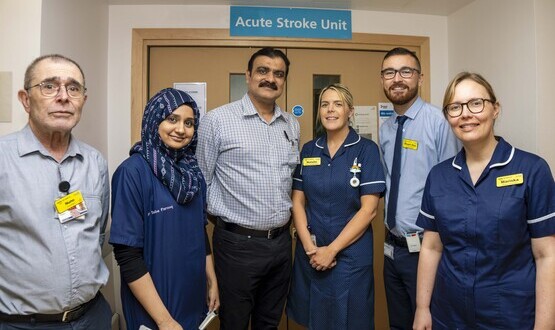Worcestershire Acute Hospitals NHS Trust has recently introduced cutting-edge artificial intelligence technology to improve the treatment of stroke patients.
The innovative RapidAI software analyzes brain images, aiding clinicians in determining the most effective treatment for each patient, whether it be surgical intervention or medication to remove blood clots.
Since its implementation, over 30 stroke patients have received life-saving treatment that may have otherwise been overlooked. Dr. Girish Muddegowda, Clinical Lead at Worcestershire Acute Hospitals, expressed how the software has revolutionized decision-making in time-sensitive situations, ultimately enhancing stroke recovery outcomes.
The AI software supports clinicians in evaluating neuro images, assisting in the management of hyperacute stroke care and enabling advanced treatment while adhering to established guidelines.
RapidAI’s capabilities include automatically detecting large vessel occlusions and assessing blood flow to the brain, providing clinicians with valuable insights into a patient’s neurovascular status.
Furthermore, the analyzed scans are readily accessible to clinicians at Queen Elizabeth Hospital in Birmingham, facilitating seamless patient transfers if additional treatment is necessary.
Stuart Guy, Directorate Manager for the stroke unit at Worcestershire Royal Hospital, commended the software for streamlining decision-making processes and enhancing patient care pathways.
AI technology is increasingly integrated into stroke care, with examples like the collaboration between Visionsable and Brainomix at Ipswich Hospital in boosting stroke treatment pathways.





